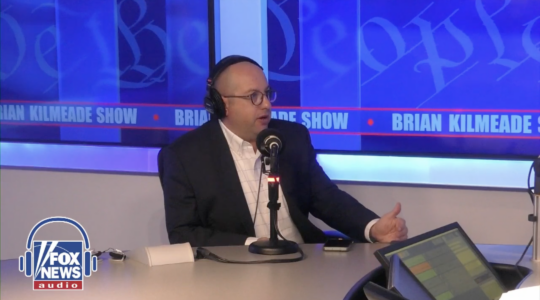JERUSALEM (JTA) — Moshe Feiglin of the Likud Party offered a plan to pay Palestinian families to emigrate from the West Bank.
The plan offered Tuesday evening came during a conference in Jerusalem on ways to make a one-state solution work. Earlier in the day, Feiglin was detained by Israel Police for praying on the Temple Mount.
At the conference, Feiglin said that Israel could use the money it uses for security and defense to pay Palestinians to immigrate to the West. He added that recent poll data showed a majority of Palestinians living in the West Bank would be willing to leave.
Feiglin set the amount per Palestinian family at $500,000.
Several Likud lawmakers at the conference reportedly expressed support for annexing the West Bank.
Feiglin, who was placed in a realistic spot on the joint Likud-Beiteinu Party list for the Jan. 22 elections, reportedly has been asked by the party to avoid being interviewed during the run-up to the vote.
On Tuesday morning, he reportedly bowed down on the Temple Mount and was removed from the site by an undercover policeman. He was questioned by police and later released with no restrictions, Ynet reported. Channel 10 reported later in the day that police plan to prosecute Feiglin for praying at the site without permission.
Feiglin, head of the Likud’s Jewish Leadership faction, visits the Temple Mount on the 19th of each Hebrew month and brings guests with him.
Jews generally are not permitted to pray or bring any ritual objects to the Temple Mount, which is considered Judaism’s holiest site, in order to avoid confrontation with Muslim worshipers at the Al-Aksa Mosque.
At the beginning of December, Feiglin reportedly led a prayer service on the Temple Mount without incident. A video of the prayer service was broadcast on Channel 10.
Feiglin was arrested in October for praying on the Temple Mount “in violation of the customs of the site,” according to Israel Police, a charge he denied. He also refused to agree to a restraining order against his visiting the site.
JTA has documented Jewish history in real-time for over a century. Keep our journalism strong by joining us in supporting independent, award-winning reporting.





